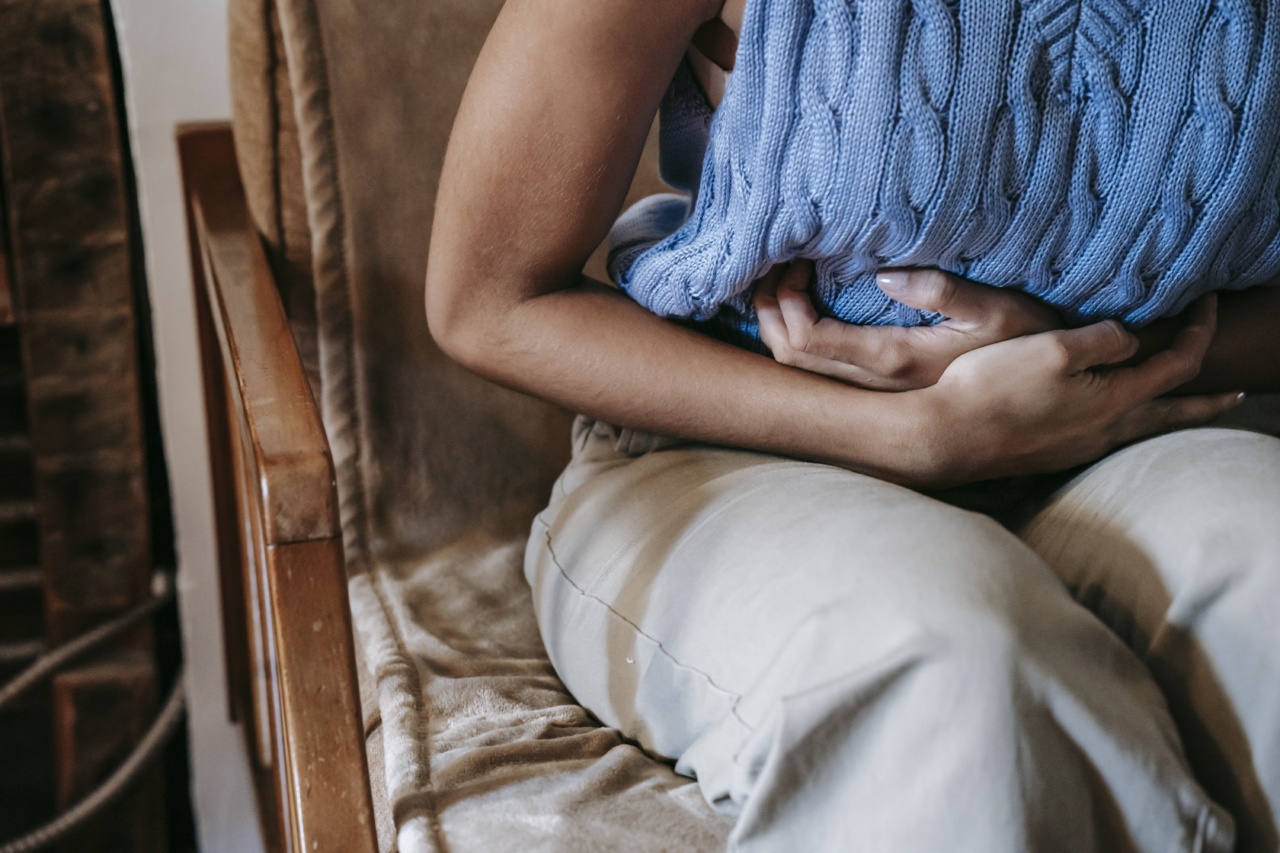Many women experience a wide range of physical and emotional symptoms in the days leading up to their monthly period.
These symptoms, collectively known as premenstrual syndrome (PMS), can vary from person to person and may include mood swings, bloating, headaches, and breast tenderness. One common symptom that can cause discomfort is chest pain or chest tightness before menstruation. If you are wondering why your chest is hurting before your period, this article will explore the possible causes and provide guidance on finding relief.
The Connection Between Hormonal Changes and Chest Discomfort
Before diving into the specific reasons behind chest pain before your period, it is important to understand how hormonal changes throughout your menstrual cycle can impact your body.
Your monthly menstrual cycle involves a complex interplay of hormones, including estrogen and progesterone. These hormones regulate the growth and shedding of the uterine lining in preparation for pregnancy.
In the second half of your menstrual cycle, or the luteal phase, progesterone levels rise to prepare the body for potential pregnancy. This hormonal fluctuation can cause several symptoms, one of which is breast tenderness or soreness.
The breast tissue is highly responsive to hormonal changes, making it susceptible to discomfort or pain in response to the rise and fall of estrogen and progesterone levels.
Cyclic Mastalgia: The Primary Culprit
The most common reason for chest pain before your period is cyclic mastalgia. Cyclic mastalgia refers to breast pain or tenderness that occurs in a regular pattern, typically a few days before menstruation and diminishes after the period begins.
This condition is benign and often affects both breasts symmetrically.
The exact cause of cyclic mastalgia is not fully understood, but it is believed to be associated with the hormonal fluctuations that occur during the menstrual cycle.
The sensitivity of breast tissue to hormonal changes can lead to inflammation, swelling, and discomfort. Cyclic mastalgia can vary in intensity from mild to severe and may also be accompanied by breast enlargement or lumps.
Non-Cyclic Mastalgia: An Alternative Possibility
While cyclic mastalgia is the most common cause of chest pain before your period, it is essential to consider other potential factors that may be contributing to your discomfort.
Non-cyclic mastalgia refers to breast pain that is not related to hormonal fluctuations and can occur at any time during the menstrual cycle.
Non-cyclic mastalgia may be caused by various factors, including injury, trauma, infection, or fibrocystic breast changes.
It is important to differentiate between cyclic and non-cyclic mastalgia, as the treatment approaches vary depending on the underlying cause. If you experience persistent or severe breast pain that is not directly related to your menstrual cycle, it is important to consult a healthcare professional for a thorough evaluation.
Other Possible Causes of Chest Pain Before Your Period
While cyclic mastalgia and non-cyclic mastalgia are the primary contributors to chest pain before your period, there are a few other potential causes to be aware of:.
1. Costochondritis:
Costochondritis is the inflammation of the cartilage that connects the ribs to the breastbone. It can cause chest pain, especially when pressure is applied to the area.
This condition can be aggravated by hormonal changes and may be more noticeable before your period.
2. Anxiety and Stress:
Psychological factors such as anxiety and stress can also contribute to chest pain or discomfort. Many women experience heightened emotional sensitivity and mood swings before their period, which can manifest as physical symptoms, including chest pain.
3. Medications:
Sometimes, certain medications or hormonal therapies prescribed for other conditions can cause chest pain as a side effect.
If you recently started taking a new medication and are experiencing chest pain before your period, it is essential to consult your healthcare provider to explore potential connections.
4. Gastrointestinal Issues:
In some cases, gastrointestinal issues such as heartburn or acid reflux can cause chest pain that coincides with your menstrual cycle. These conditions can be exacerbated by hormonal changes and may lead to discomfort.
Managing and Finding Relief for Chest Pain Before Your Period
While experiencing chest pain before your period can be distressing, there are several strategies that can help manage and alleviate the discomfort:.
1. Over-the-Counter Pain Relief:
Nonsteroidal anti-inflammatory drugs (NSAIDs) such as ibuprofen or naproxen sodium can help reduce inflammation and provide relief from chest pain.
It is advisable to consult your healthcare provider before taking any medication to ensure it is suitable for you.
2. Supportive Bras:
Wearing a well-fitting bra, particularly a sports bra, can provide additional support and help alleviate breast discomfort. Choosing a bra with wide straps and good breast coverage can distribute pressure evenly and reduce strain on the chest area.
3. Dietary Modifications:
Reducing your intake of caffeine, salt, and fatty foods in the days leading up to your period may help alleviate breast tenderness and chest pain. Incorporating foods rich in vitamin E, such as nuts and seeds, may also provide relief.
4. Heat or Cold Therapy:
Applying a warm compress or taking a warm bath can help relax the chest muscles and relieve pain. Some women find cold therapy more effective for reducing inflammation and tenderness. Experiment with both to determine which method works best for you.
5. Stress Management Techniques:
Engaging in stress-reducing activities such as yoga, deep breathing exercises, or meditation can help alleviate chest discomfort associated with anxiety or stress.
Prioritizing self-care and practicing relaxation techniques may contribute to overall well-being during the premenstrual phase.
When to Seek Medical Attention
While chest pain before your period is often a benign symptom, there are situations where it is advisable to seek medical attention:.
1. New or Sudden Onset of Symptoms:
If you are experiencing chest pain for the first time or if the pain is sudden and severe, it is important to consult a healthcare provider to rule out any underlying medical conditions that may require immediate attention.
2. Unusual Changes in Breast Appearance:
If you notice any new lumps, changes in breast size or shape, or unusual discharge, it is crucial to have a healthcare professional assess your symptoms to exclude any serious underlying causes.
3. Symptoms Persist or Worsen:
If your chest pain persists or worsens despite trying self-care measures, it is important to seek medical advice. A healthcare provider can evaluate your symptoms and recommend appropriate treatment options.
Remember, everyone’s experience with chest pain before their period can vary. It is essential to listen to your body and seek guidance from a healthcare professional if you have any concerns or questions regarding your symptoms.































